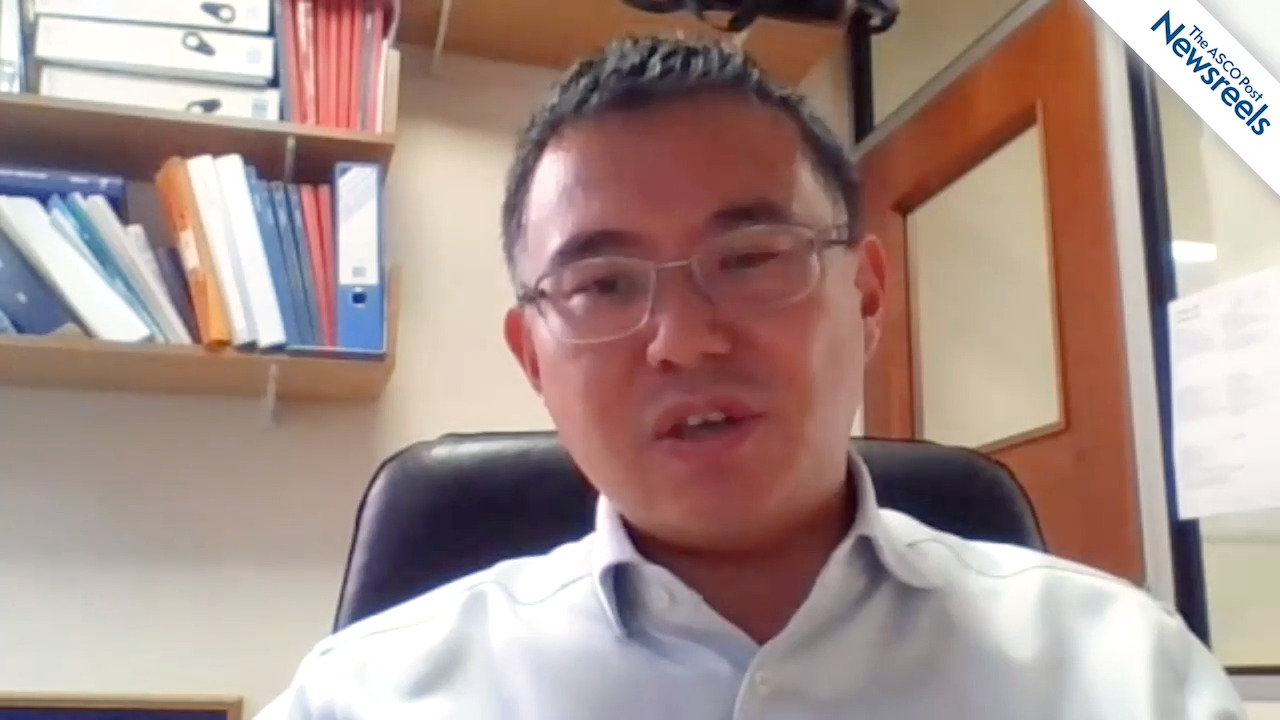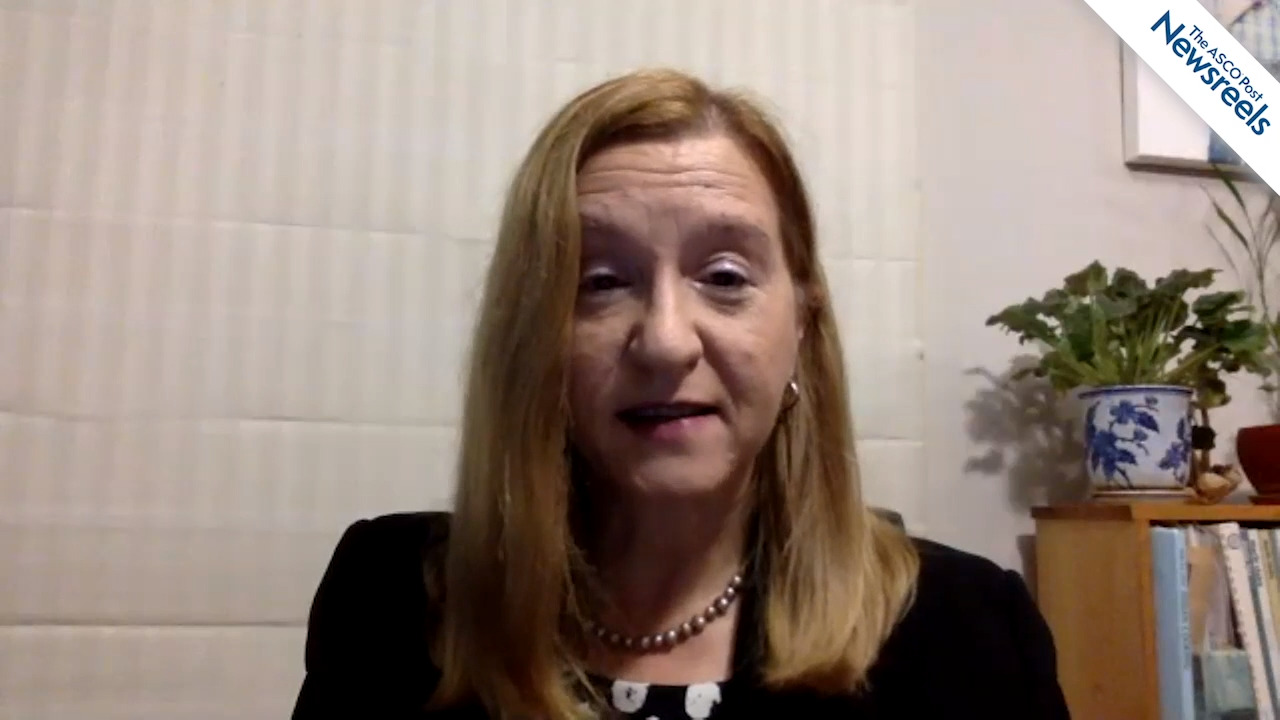Cathy Eng, MD, on Colorectal Cancer: FOLFOXIRI, Cetuximab, and Bevacizumab as First-Line Treatment
2021 ASCO Annual Meeting
Cathy Eng, MD, of Vanderbilt-Ingram Cancer Center, discusses two abstracts from a session she co-chaired: the phase II DEEPER trial, which explored the use of FOLFOXIRI plus cetuximab vs FOLFOXIRI plus bevacizumab as first-line treatment in metastatic colorectal cancer with RAS wild-type tumors; and the phase II FIRE-4.5 study, which investigated FOLFOXIRI plus either bevacizumab or cetuximab as first-line treatment of BRAF V600E–mutant advanced disease (Abstracts 3501 and 3502).
The ASCO Post Staff
Ian Chau, MD, of Royal Marsden NHS Foundation Trust, discusses first results of the CheckMate 648 study, which showed that nivolumab plus chemotherapy and nivolumab plus ipilimumab both demonstrated superior overall survival vs chemotherapy alone in patients with advanced esophageal squamous cell carcinoma. These regimens may represent potential new first-line treatment options (Abstract 4001).
The ASCO Post Staff
Priya Rastogi, MD, of the University of Pittsburgh, discusses results from the NRG Oncology/NSABP B-42 trial, which evaluated the utility of the 70-gene MammaPrint assay in predicting the benefit of extended letrozole therapy in patients who had completed 5 years of adjuvant endocrine therapy (Abstract 502).
The ASCO Post Staff
Nicholas J. Short, MD, of The University of Texas MD Anderson Cancer Center, discusses early results from a phase II study which showed that combining ponatinib and blinatumomab in patients with Philadelphia chromosome–positive acute lymphoblastic leukemia may prove to be an effective chemotherapy-free regimen that might reduce the need for allogeneic hematopoietic stem cell transplant (Abstract 7001).
The ASCO Post Staff
Linda R. Mileshkin, MBBS, MD, of the Peter MacCallum Cancer Centre, discusses phase III findings from the OUTBACK trial, which showed that adjuvant chemotherapy given after standard cisplatin-based chemoradiation for women with locally advanced cervical cancer did not improve either overall or progression-free survival (Abstract LBA3).
The ASCO Post Staff
Evan J. Lipson, MD, of Johns Hopkins University, discusses primary phase III results from the RELATIVITY-047 study, which showed that relatlimab plus nivolumab as a fixed-dose combination may improve progression-free survival compared with nivolumab monotherapy in patients with advanced melanoma. This is the first study to demonstrate a benefit from dual inhibition of the LAG-3 and PD-1 pathways.





